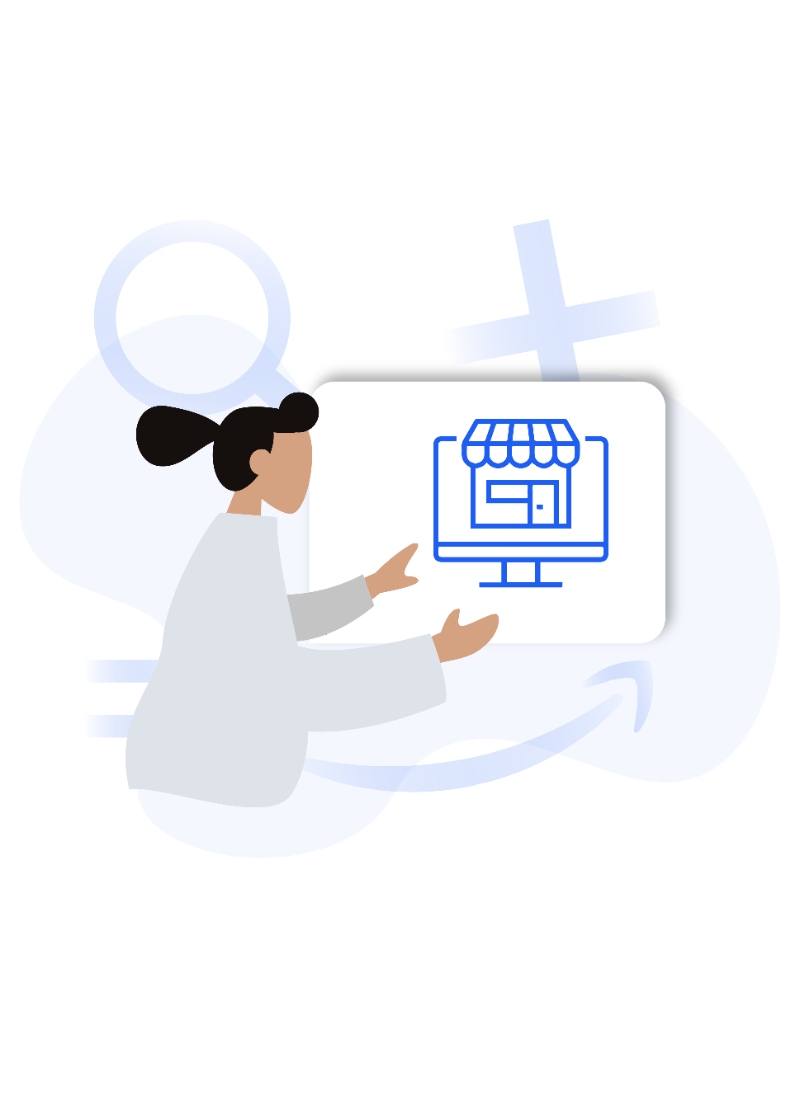
In a world going digital, online marketplaces are fast becoming the norm, especially among millennials and Gen Z, who likes to buy on the go. Global online shopping giant Amazon reported 200 million unique monthly users making purchases via its portal, while the website’s revenue was over $280 billion. Earlier, online shopping was a great deal about convenience and the personal preference of the customer. During the pandemic phase, shopping via online marketplaces became more of a necessity owing to lockdown restrictions and the need for contactless deliveries. Post-pandemic, the trend has caused a massive shift in customer preferences towards online shopping.
The pandemic also forced businesses to go online to find a new and wider customer base. Consequently, thousands of retailers are finding it essential to make their products available on big online marketplaces, including Myntra, eBay, Amazon, etc. These online e-commerce portals offer several advantages over the traditional physical structures. However, they suffer from their unique set of disadvantages. Let’s discuss both aspects in detail.
Pros of Selling on Online Marketplaces
- Online Marketplaces are highly-preferred sales channels for online merchants as they attract millions of unique customers every month. 2019 saw Amazon sales skyrocket to 4000 items (of SMBs) per minute. The pandemic did its bit to expand the online user base further and reach of these e-commerce portals as the world went into lockdown and online shopping sites were the only option. Small-scale businesses starting new don’t have the necessary infrastructure and market knowledge to establish a platform with a large customer base. Selling on online marketplaces provides a much wider customer base with inherently built trust and credibility.
- E-commerce giants like Amazon and Flipkart have a sound technical and legal infrastructure that helps sellers get onboard with ease. The websites are adept at handling huge customer traffic at any point in time. A seller is able to save critical time and funds, which can be deployed to improve products and services. These marketplaces provide sellers with the right exposure and the opportunity to scale.
- Online marketplaces provide ready trust and credibility to the small and medium scale sellers by helping them manage their customer service, and exchange/returns policy efficiently. Also, a customer would usually find buying from known e-commerce sites like Amazon much safer than revealing their card details on a product website they had never heard of.
- These marketplaces give international exposure to the sellers as they cater to a global audience. Amazon has over 13 country-specific websites, but it delivers and ships products to over 100 countries globally. Sellers, too, can test if their products appeal to a global audience by simply listing on the platform.
- Shipping and delivery constitute a significant aspect of online selling. E-commerce websites take complete care of the logistics, payment systems, and operations. Sellers can enjoy a hassle-free experience as the sites have them covered for order fullfillment and customer support.

Cons of Selling on Online Marketplaces
Online marketplaces have their own set of shortcomings beyond the rosy picture. Besides the commission that eats into the profit margin, there are quite a few cons that sellers face while selling on online marketplaces:
- The online marketplaces house numerous sellers selling similar products. The competition being fierce, sellers need to raise their game by making their products stand out from the crowd. Malicious sellers often eat into brands’ customer base by using their seller info to dupe customers with fake products. In such cases, the bad customer reviews appear below the genuine product, negatively affecting its sales.
- The high level of competition requires sellers to promote their products via additional social media marketing. These additional costs directly impact the profits, which are already trimmed down after the commission cut.
- Even though selling via an online marketplace saves costs and time, it doesn’t lead to brand-building or long-term customer relationships. The customers scroll through these marketplaces, focusing on the product rather than the brand. If a seller wants to build their brand, using only Amazon or other e-commerce channels isn’t the right approach.
- Whenever a customer makes a payment on an online shopping marketplace, the payment is first received by the marketplace and not the seller. Not before the deductions for service fees and other commissions have been made that the seller gets the amount credited in their seller account. The payment cycle is spread over 7 to 14 days for popular websites like Amazon. This poses management hurdles for new sellers that face a cash crunch for lack of a regular flow of money.
At Salt, we understand the specific needs of online seller businesses and cater to their financial needs via its efficient neo banking options. Some of these features include:
- Multiple-account system, with multiple-currency support, where businesses are provided with a unique tech and user experience brought together for time and cost savings.
- Online sellers can manage their expenses, collections, and payouts in real-time from anywhere worldwide.
- Sellers also have access to deep-dive reports on their financial expenses and regular flags on faulty and suspicious transactions.
- Sellers can access finance via a coterie of products such as e-cash, e-wallet, virtual cards, real cards, etc., for a seamless and accessible experience.
Don’t let finance become a hurdle in your business’s success journey. Head over to Salt to manage and grow your business globally via our truly borderless banking services, offering a one-stop portal to manage all your financial needs.
Online Marketplaces are highly-preferred sales channels for online merchants as they attract millions of unique customers every month. 2019 saw Amazon sales skyrocket to 4000 items (of SMBs) per minute. The pandemic did its bit to expand the online user base further and reach of these e-commerce portals as the world went into lockdown and online shopping sites were the only option. Small-scale businesses starting new don’t have the necessary infrastructure and market knowledge to establish a platform with a large customer base. Selling on online marketplaces provides a much wider customer base with inherently built trust and credibility.
E-commerce giants like Amazon and Flipkart have a sound technical and legal infrastructure that helps sellers get onboard with ease. The websites are adept at handling huge customer traffic at any point in time. A seller is able to save critical time and funds, which can be deployed to improve products and services. These marketplaces provide sellers with the right exposure and the opportunity to scale.
Online marketplaces provide ready trust and credibility to the small and medium scale sellers by helping them manage their customer service, and exchange/returns policy efficiently. Also, a customer would usually find buying from known e-commerce sites like Amazon much safer than revealing their card details on a product website they had never heard of.
These marketplaces give international exposure to the sellers as they cater to a global audience. Amazon has over 13 country-specific websites, but it delivers and ships products to over 100 countries globally. Sellers, too, can test if their products appeal to a global audience by simply listing on the platform.
Shipping and delivery constitute a significant aspect of online selling. E-commerce websites take complete care of the logistics, payment systems, and operations. Sellers can enjoy a hassle-free experience as the sites have them covered for order fulfillment and customer support.


